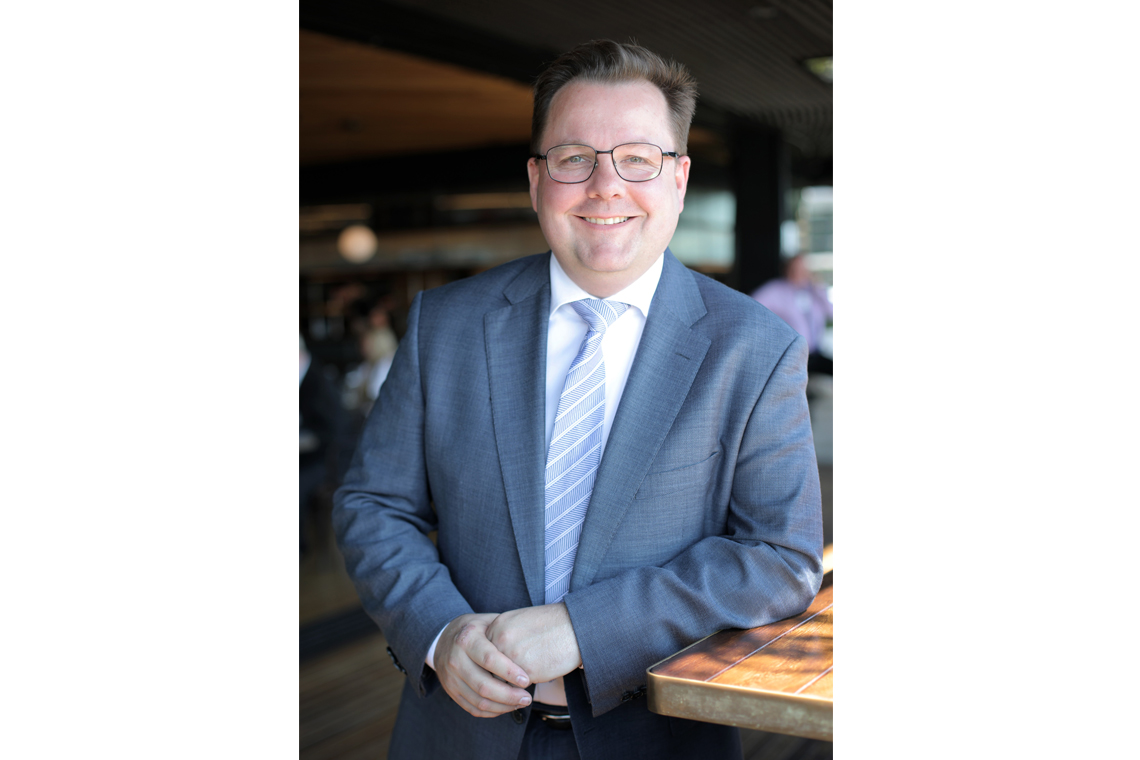After being re-elected unopposed for his fourth term at the helm of the national branch of the Australian Hotels Association, Scott Leach sat down with Australian Hotelier to discuss his focus for the next twelve months.
Taking some time out of the AHA NSW Life Member luncheon, Leach spoke to Australian Hotelier about his renewed position of national president of the AHA, and the accountability that bears for the industry across Australia.
“The responsibility is not lost on me, that when your colleagues give you the opportunity to represent the industry, it’s an honour. I’ve been doing it for three years, I’m really proud of what the team’s achieved and I’m really looking forward with a great deal of veracity to what we can do in the next twelve months. I feel proud, but more importantly I feel proud of the people around me.”
Looking ahead to this next twelve-month term, Leach said he has two main focuses on the national spectrum: labour force reform, and energy usage overhaul.
Labour force reform
Leach sees the most pressing crisis that the industry is facing is the lack of labour in crucial positions throughout pubs. It’s something he’s looking to rectify on the federal stage. With the path to residency removed from most working visas, the hospitality industry has lost access to many chefs abroad that are in high demand. He says that the way the conversation is currently being framed needs some rethinking.
“There’s a debate in this country that we’ve got to upskill, based on the assumption that the workforce exists and it just doesn’t have the skills. My argument is the workforce isn’t there.”
“Here in Sydney, Crown opens in January 2021 – those 2500 people, where are they going to come from? Major international hotels opening in the city in the next 18 months, where are they [staff] going to come from? That’s before you look at renovating current stock and the continued emergence of pop-up culture, the rise of foodies, etc.
“So personally it’s about trying to deliver the most persuasive case to Parliament – not just Government, because we’ll need both Government and the Opposition – we really want to penetrate beyond the xenophobic nature of Australian politics when you talk about labour force. We can have people work in this country on a visa system and that’s not taking jobs away from Australian kids.”
Leach is set to mount a significant campaign to reform labour force legislation, as otherwise he expects the lack of appropriate staffing to significantly curtail the offerings of the industry in the future.
“I will deploy the assets of the AHA federally as if it was an election campaign. We must convince people, otherwise in another 2,3, 5 years the only thing you’ll get at a function is a frozen meal because you simply won’t have the chefs, trainee managers, supervisors. It’s a huge problem.”
Energy agreements
The other main focus for the AHA at a national level is a restructuring of energy usage in venues through a collective power purchasing agreement (PPA). In a world-first, AHA NSW has created an aggregated PPA with 1800 small energy suppliers through ENGIE New South Wales. It has given the members that have got on board the ability to generate up to 60 per cent of their energy through renewable sources such as wind and solar – and has also reduced expenditure on that energy. While the New South Wales agreement is up and running, Queensland and South Australia are currently fielding bids for their own PPAs, with Victoria shortly to follow.
“By the end of the next calendar year the goal is to have a third to half of AHA members engaged in that process and coming on board. Part of the national response is around energy – understanding that we need to be at the forefront of reducing the impact on the community through the operation of our businesses and energy consumption,” states Leach.
Bushfire support
A more immediate task is to support those pubs and communities currently being affected by devastating bushfires across the country, with the issue “absolutely at the forefront of our minds.”
“We’ve had a crisis management plan in position for a long time. In the worst case scenario where a hotel is breached by fire, that involves us putting into place assets on the ground to help with initiatives around insurance and rebuilding,” Leach explained.
“When communities are ravaged, we’ll also fly in food, soft drink, water, beer, and run events to support the firefighters. I would expect over the next couple of weeks you’ll see everything from the worst case scenario to just actually supporting the firefighters on the ground – we’ll deploy a lot of resources.”

